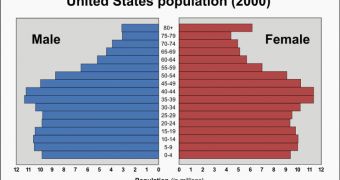A team of Australian researchers is saying that the Baby Boomers segment of the population is starting to reinvent what retiring from the field of work means.
The term Baby Boomer refers to cohorts of the general population that were born during the middle part of the 20th Century, after the end of World War II.
This generation is currently starting to reach the age of retirement, and scientists at the University of Melbourne are inviting them to discuss their experiences for the Reinventing Retirement project.
This joint research initiative reunites experts from UM, the York University and the McGill University, both in Canada. Its goal is to determine how people expect and prepare for retirement.
The work will be conducted by University of Melbourne associate professor Leisa Sargent and research fellow Paul Evans, PhysOrg reports.
Scientists in Australia say that their nation will soon have to join the trends set forth by countries in the Organization for Economic Co-operation and Development (OECD), of which the nation is a part.
OECD is an international organization featuring some 33 developed countries, and experts from these nations say that the Baby Boomer generation is beginning to generate new expectations in how retirement should look like.
“Many of them are emphasizing ‘productive’, ‘active’ and ‘positive’ aging,” Sargent says.
“This is particularly true in terms of new policies relating to the repealing of pensions and user-pays health services, and the continued engagement in work to be ‘forever productive’,” she goes on to say.
“Our preliminary results show that for many recent retirees, they have a strong focus on ‘looking forward’, even if they are generally satisfied with their current new-found freedom and independence,” Sargent explains further.
It will be the job of the new study to “examine the variation in retirement experiences, assessing both the practical and theoretical implications,” the team leader adds.
“Will we see this generation of retirees be ‘forever productive’ or will they be more likely to be ‘disengaged and in decline’, less likely to take up volunteer positions and share their knowledge with their old workplaces?” she says.
Evans adds that the work will also seek to gage the potential impact that the expectations of this retiree generation will have on the development and success of businesses.
“From an organization perspective, there are concerns that the baby boomer generation’s retirement will cause serious shortages of expertise and experience in vital sectors of the economy, especially when combined with smaller cohorts of new professionals and managers,” he concludes.

 14 DAY TRIAL //
14 DAY TRIAL //